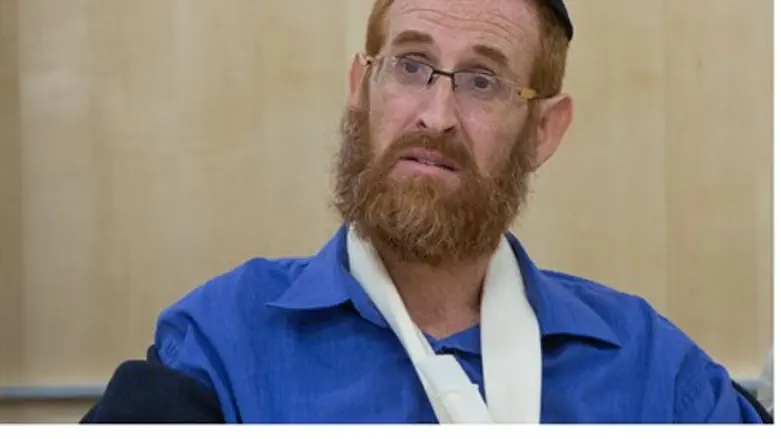
Temple Mount activist Yehuda Glick, who recently was released from the hospital after surviving an assassination attempt by an Arab terrorist, on Thursday had his petition of the distancing order from the Temple Mount against him denied in court.
Jerusalem District Court Judge Aryeh Romanov rejected the petition, effectively banning Glick from the Mount - the holiest site in Judaism - where Glick has been leading the struggle for equal Jewish prayer rights that have been forbidden by the Jordanian Waqf despite Israeli laws allowing freedom of worship.
Romanov accepted the state's position according to which Glick cannot visit the Temple Mount until proceedings against him for allegedly hitting a Muslim woman at the Mount are finished. Glick strongly denies the charges against him.
The activist's lawyers intend to petition the ruling and take the case to the Supreme Court.
Glick - who founded and heads the LIBA Initiative for Jewish Freedom on the Temple Mount – was shot in the chest on October 29 outside the Begin Heritage Center in Jerusalem. The shooter Mu'taz Hijazi, who was an Islamic Jihad terrorist, convict, and employee at a restaurant in the Center, pulled up in a motorcycle or scooter and confirmed Glick's identity before opening fire at point-blank range.
Prior to the attack Glick had been repeatedly targeted in an online hate campaign, and recently the Jerusalem District Court revealed that a separate attack on Glick had been planned for October 30 - one day after he was shot. An expose by Galei Yisrael shortly after the attack implied that the police did, in fact, know about the threats to Glick's life before the attack, despite their denials.
Nevertheless, after his miraculous recovery from four gunshots and critical wounds Glick was released from Shaare Tzedek Hospital in Jerusalem without a police security detail, at which a band of volunteers took the task of helping to protect the activist.
In an interview on Wednesday with Channel 10, Glick said "instead of blaming activists who are acting responsibly for the tension on the Temple Mount, police should take action against those who threaten and harm the public. I truly hope that police will do something about the incitement against me and my colleagues in the same way that it efficiently operates against Jewish incitement against Arabs."